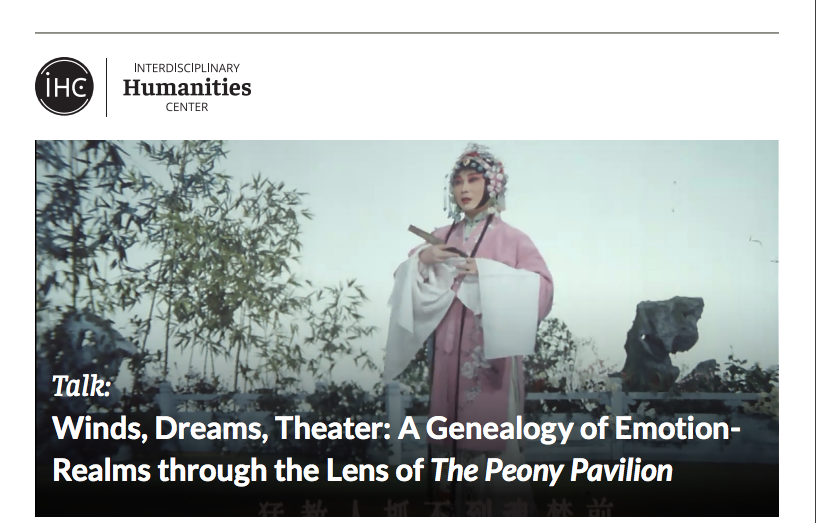
- This event has passed.
TALK: WINDS, DREAMS, THEATER: A GENEALOGY OF EMOTION-REALMS THROUGH THE LENS OF THE PEONY PAVILION
May 10, 2018 @ 5:00 am PDT

In his talk, Lam will give a revisionist history of emotions in Chinese literature and culture centered on the idea of emotion as space – which the Chinese call “emotion-realm” (qingjing) – rather than a state of mind. If The Peony Pavilion (Mudan ting, 1598) is the romantic play par excellence in early modern China, it is not because, as many assume, it celebrates emotion as the innermost essence of a liberated individual. Rather, it is because the play eloquently encapsulates the three major historical regimes of the spatiality of emotion: winds, dreamscapes, and theatricality. The Peony Pavilion has deployed these various regimes in an anachronistic juxtaposition, obliterating their timeline and structural differences. Lam will give an archaeological reading of the play that renders visible the subtle transformation of Chinese theater and subject formation—of which the transfiguration of the dream and the rise of the media environment are telling symptoms—as an aspect of the genealogy of emotion-realms.
Ling Hon Lam is an assistant professor in the Department of East Asian Languages and Cultures at the University of California, Berkeley. His research and teaching interests cover premodern drama and fiction, women’s writing, sex and gender, history of sentiments, nineteenth- and twentieth-century media culture, and critical theories. His book, The Spatiality of Emotion in Early Modern China: From Dreamscapes to Theatricality, is forthcoming from Columbia University Press in Spring 2018.
Sponsored by the UC Humanities Network and co-presented by the Interdisciplinary Humanities Center and the Department of East Asian Languages and Cultural Studies.


